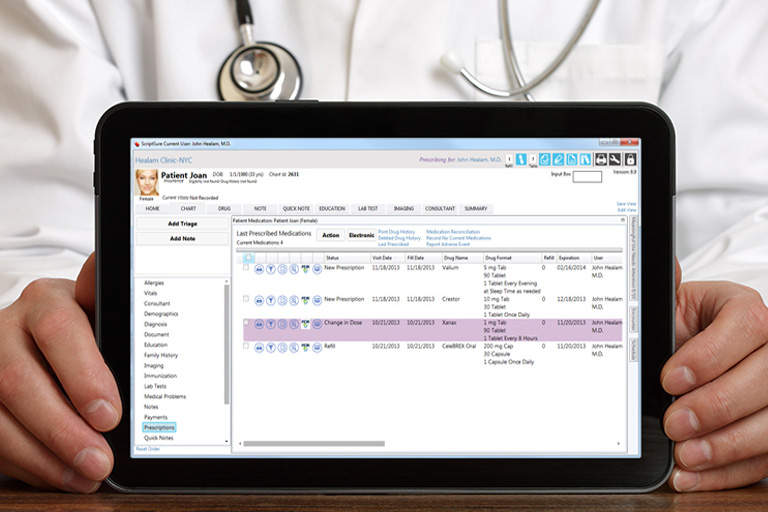Summary by EMR Industry:
- More than a third of physician practices plan to purchase, replace or upgrade ambulatory EHR systems.
- Both the tethered and non-tethered ambulatory EHR markets show signs of maturing.
- Even as they look toward a future of health information exchange, physicians nowadays are overwhelming focused on Stage 1 meaningful use
ORIGINAL NEWS:
More than a third of physician practices plan to purchase, replace or upgrade ambulatory EHR systems, according to HIMSS Analytics’ newest Ambulatory Electronic Health Record & Practice Management Study. Meanwhile, nearly half of physician groups say they’ll join an HIE.
The fifth annual report represents HIMSS Analytics’ continuation of the series previously published by CapSite, which was acquired by HIMSS in late 2012. In addition to polling more than 800 physician groups about EHR and practice management technologies, the study incorporates information from the HIMSS Analytics Database to offer an in-depth look at the ambulatory market.
Both the tethered and non-tethered ambulatory EHR markets show signs of maturing, Brendan FitzGerald, HIMSS Analytics Research Director, tells Healthcare IT News.
“We’ve done this five years in a row, and I think the maturing of the market is a nice take-away,” he says. “What we’re seeing is that that high adoption rate across not only hospital-owned but free-standing physician practices as well. That’s a positive for the industry.”
One big recent shift says FitzGerald, is that, “As we get further down the road of meeting meaningful use, and stepping up to meet those guidelines, more and more folks are leaning toward joining a health information exchange. Nearly half of the respondents, 46 percent or so, were looking to do that, on either a statewide, regional or hospital basis.”
Despite all the challenges practices are facing, from financial pressures to government mandates, he says physician practices are embracing HIE “enthusiastically,” for the most part.
That’s primarily “because of where the industry is headed, in terms of accountable care,” says FitzGerald. “There is that need and want to improve care and cut costs across the board.”
The ambulatory market is still very much in flux, however.
“Even though we’re pretty far down the line in terms of people purchasing these solutions, practice management and EHR, there’s still a fair number that are looking to either still purchase or upgrade or replace completely across the ambulatory side,” he says.
Whether is a free-standing practice or one that’s hospital owned, “You’ve got that portion of the market that will be looking to upgrade or purchase new, or completely replace their solution,” says FitzGerald. “Overall there is still that fine tuning and work that needs to be done until physician practices and hospitals alike are happy.”
Even as they look toward a future of health information exchange, physicians nowadays are overwhelming focused on Stage 1 meaningful use. “That’s what they’re grappling with now,” he says. “We’ve seen in the industry the date for Stage 2 MU get pushed out, so what they’re focused on is making the practice more efficient within the framework they’ve set up: Redefining workflows, getting comfortable with using their in-house solutions, and ultimately increasing the quality of care for their patients.”
























